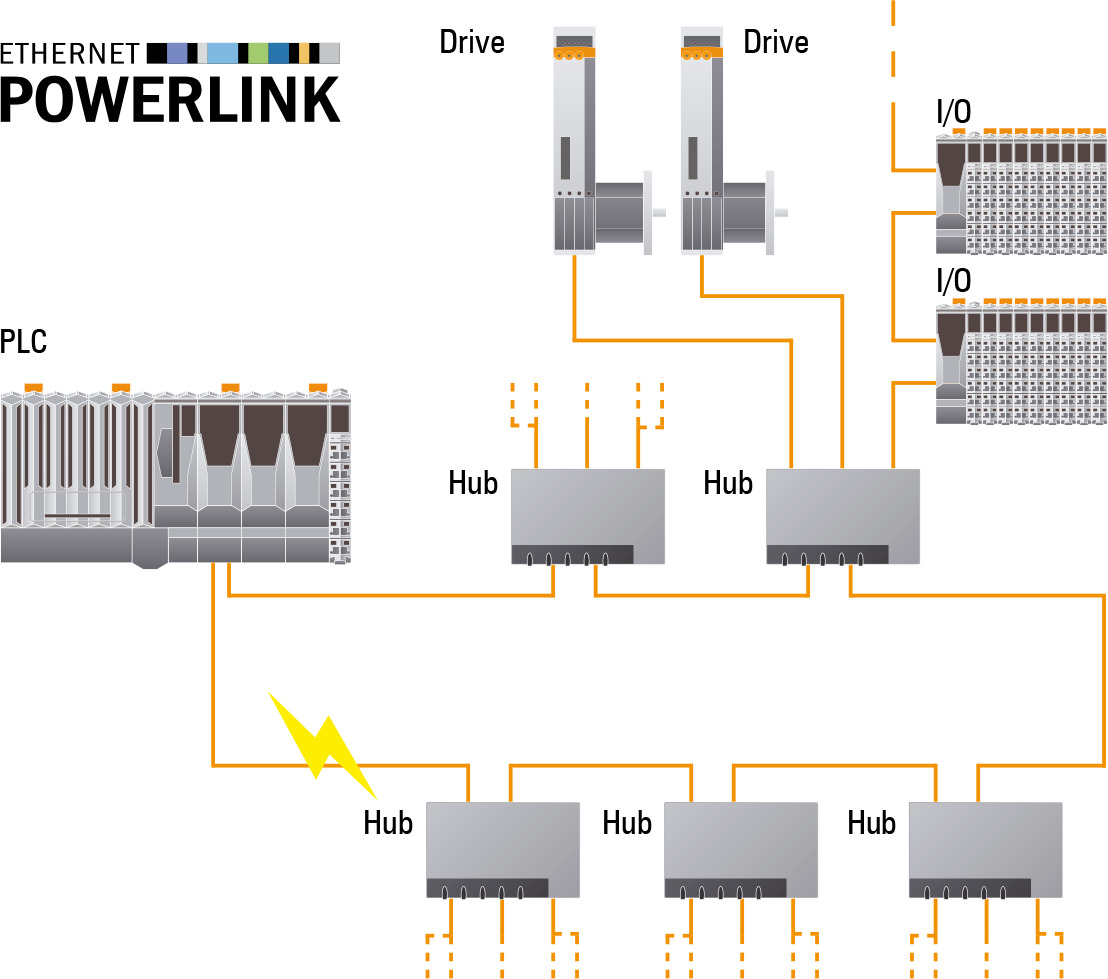
Redundancy can refer to either controller or network redundancy. In the case of POWERLINK network redundancy, a further distinction can be made between ring redundancy and cable redundancy. A combination of controller and network redundancy maximizes protection against failures across the entire automation system.
Additional information can be found in the user's manual:
Controller redundancy

B&R's redundant control system concept ensures maximum availability for entire systems as well as individual machines. Master redundancy with POWERLINK synchronizes data with microsecond precision and can be switched over in a matter of milliseconds. This functionality is seamlessly integrated in the real-time operating system and extremely easy to use. A second identical AtomTM controller from the X20 standard product range is added to the existing control topology and configured as redundant via software. An interface module handles data exchange completely automatically. Configuration and visualization remain the same for the user. Maximum machine availability really is only a mouse click away.
Highlights
- Changeover times within a few milliseconds
- Synchronization with microsecond accuracy
- Seamlessly integrated
- Standard X20 CPUs
- One click configuration
- Smooth software updates
- Controller replacement without machine downtime
Ring redundancy

Ring redundancy is arguably the simplest way to provide network redundancy. Here, the POWERLINK devices are connected in a line, with the last unit connected back to the master. Thus the ring is closed. The ring redundancy manager immediately registers an interruption at any point and handles the data supply from both sides. This guarantees that communication to all nodes remains intact whenever an interruption occurs. The master recognizes when the ring is closed again and responds accordingly, with data once again only being supplied from one side of the ring.
Highlights
- Simple design
- Seamlessly integrated
- Standard X20 components
- Partial ring possible
- Decoupling for a slip ring possible
Cable redundancy

With this type of network redundancy, two cables run through the system with each network node connected to both lines. If a cable error occurs, the system automatically switches to the line that is still functioning. This also allows the lines to be run over separate paths, as it is often specified for process technology. The master redundancy capabilities of POWERLINK allow cable redundancy to be perfectly combined with controller redundancy. This makes it possible for B&R to offer a redundancy solution that ensures maximum machine and system availability.
Highlights
- Suitable for process and plant automation
- Seamlessly integrated
- Standard X20 components
- Possible to replace components during runtime
- Separate line routing possible